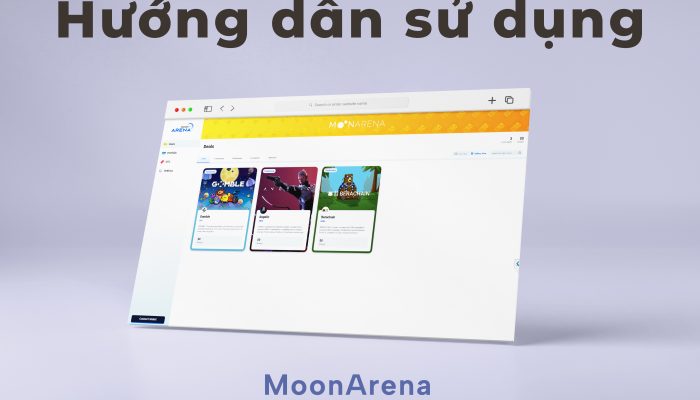Happy Halloween, witches, and mystics! This one is for you. Artificial intelligence has revolutionized how people create and interact with content, making for more personalized experiences that are tailored to every person’s needs—including spiritual and celebratory endeavors.
AI can write articles, compose music, and even help create virtual worlds in which solitary mystics or groups can interact. This article will look at tools that spellcasters can use to bolster their practice or get started.
Crafting Words
As more advanced chatbots enter the market, mystics have a growing list of options to work with, including Google’s Bard and Anthropic’s Claude AI, but OpenAI’s ChatGPT is the standard for measuring AI chatbots. OpenAI’s GPT-3.5, the current free version of ChatGPT, is very good at responding to user prompts. Witches and magicians can use ChatGPT to develop spells and ritual ideas by giving the chatbot prompts based on their needs. OpenAI recently included a customized response option that can change how ChatGPT responds to the user, making for a more personal collaboration.
It should be noted that OpenAI works hard to block harmful or inappropriate prompts, so no asking ChatGPT to write a spell to get you out of gym class. For example, ChatGPT, by default, will suggest a self-improvement ritual instead of a love spell.
As stated in previous installments of How to AI, ChatGPT has both a free and paid version. The more advanced GPT-4 is available for $20 monthly with a ChatGPT Plus subscription. ChatGPT Plus includes access to a growing list of plugins, many focusing on astrology, that can be helpful to any mystic looking to gleam what the stars have in store.
Thanks to several billion in investment from tech behemoth Microsoft, ChatGPT Plus also includes the Browse with Bing feature, letting intrepid mystics and witches search the internet for their spellcasting needs. Another option mystics have if they can’t afford a monthly subscription is using Microsoft’s Edge browser, which comes with OpenAI’s suite of AI tools.
Electronic Book of Shadows
Traditionally, a Book of Shadows and Grimoires have been physical books in which mystics write their thoughts, spells, and recipes. While nothing can replace the many benefits of a physical book, another option for aspiring mystics is the popular productivity, journaling, and note-taking tools like Notion, Google Docs, and Microsoft Loop.
Notion stands out for putting its AI capabilities front and center, making it a selling point for the platform. Mystics can use the integrated AI tool to design pages for their digital book quickly. Though powerful, continued use of Notion’s AI tool will require a $10 monthly subscription. Other useful tools with a similar feel to Notion’s design include Upbase, Slab, and Obsidian.
Another AI option for increasing your mystical know-how is the recently launched Mistral Trismegistus-7B. Named after the legendary esoteric figure, Hermes Trismegistus, the large language model offers insights on various topics, including palm reading, birth charts, and tarot card reading. Due to AI’s habit of hallucinating, users should not follow any instructions on how to make a broom fly.
Tarot
Tarot is a powerful divination tool for gleaming messages from the universe. There are several tarot-related plugins in the ChatGPT library and many websites that utilize AI to read the card, including Tarotoo, MyAiTarot, and Tarotnova.
AI Image Generators
While the use of text-generating AI models has grown in popularity in the corporate world, AI image generators have taken social media by storm. Stability AI’s Stable Diffusion, Midjourney, OpenAI’s Dall-E, and Runway are some of the popular AI image generators on the market.
For witches who purchased a subscription to ChatGPT Plus, Dall-E3 comes included with GPT-4. Like Midjourney and Stable Diffusion, using Dall-E, mystics can add beautiful art and decoration to their book of shadows and grimoires. For mystics who can’t afford a monthly subscription to Midjourney ($30 monthly) or ChatGPT Plus ($20 monthly), Dall-E comes included in Microsoft’s Edge browser.
Like text generators, AI developers have heavily invested in installing guardrails in their image generators after the tools were used to create deepfake images, spread misinformation, and allegedly reinforce harmful body images.
Meditation
Meditation can be powerful in aiding mystics by altering consciousness and calming and focusing the mind. Mystics can use AI meditation tools to get personalized meditation sessions by entering a few prompts or selections. Several startups have found a niche in the AI space by developing AI models designed to facilitate guided meditations, including Vital (formerly known as Ogimi), Calm, and Headspace.
AI Familiars
No witch would be complete without a familiar, and thanks to AI, every witch can use AI companion platforms like Character AI, Forever Voices, Replika, and ChatGPT. Replika stands out for the ability to customize the AI companion, including appearance, level of relationship, and knowledge base. Chatbots can help brainstorm ideas, explain concepts, and suggest ingredients and tools for your practice. Customizing ChatGPT to respond like a friend, companion, or teacher can be beneficial thanks to its ability to search the internet.
It should be noted that while these chatbots are designed to respond like a human, they are not, and anything a chatbot tells you should be taken with a hefty bag of salt.
Chatbots are designed to tell us what we want to hear. Still, if a chatbot says something disturbing or includes illegal suggestions, users are advised to alert the development team to investigate.
As more AI tools come online and become better equipped to handle complex topics and prompts, mystics, physics, and witches will have plenty of tools to add to their practice.
















